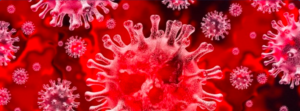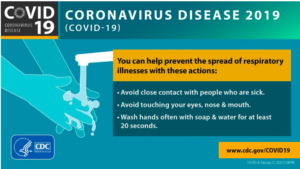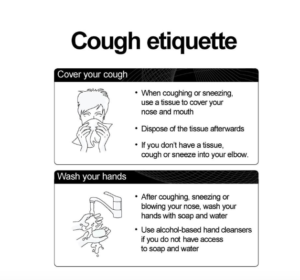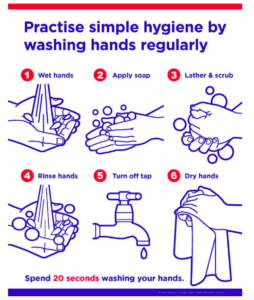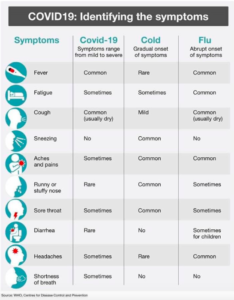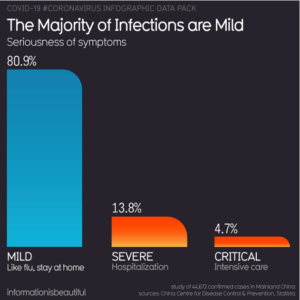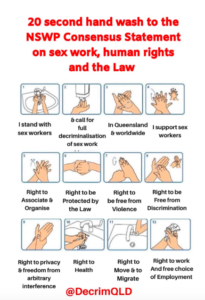This was originally posted by SWOP on their Facebook page
Sex Workers are Advised as a Minimum to Take the Same Precautions as Health Workers
Clinical advice is for sex workers to take the same precautions against COVID-19 infection as health care workers. Health care workers are situationally like sex workers as they are in close and continuous contact with their clients over an extended period.
Should Sex Workers Take Extra Precautions Against the Spread of COVID-19?
At SWOP we believe that all sex workers are extraordinary, but we also try to give only evidence-based advice.
The very nature of most sex work and the requirements of close and often very intimate physical contact with clients in most forms of sex work combined with the known transmission routes of the COVID-19 virus mean that sex workers have to consider adding extra precautions to those advised for health care workers.
We will discuss what extra precautions you may want to use later in this discussion in the sections on
- · What are “Universal Precautions” for Sex Workers and COVID-19?
- · What is Social Distancing?
- · What Can I Do Now?
How Does COVID-19 Spread?
COVID-19 is spread from person to person when
- · when people are in close contact with one another (within two meters)
- · infected people cough or sneeze, releasing minute virus-containing droplets into the air which are then breathed in by other people infecting their respiratory tract.
- · contaminated respiratory secretions, again from minute virus-containing droplets present on hands or on other surfaces transmit the virus by hand to the mouth, nose or eye of another person.
How easily a virus spreads from person-to-person can vary. Some viruses are highly contagious (spread easily), like measles, while other viruses do not spread as easily. Another factor is whether the spread is sustained, spreading continually without stopping.
The virus that causes COVID-19 seems to be spreading easily and sustainably in the community (“community spread”) in some affected areas.
How Long Does COVID-19 Stay Infectious?
COVID-19 survives on surfaces for at least several hours and up to several days. Common household strength disinfectant will kill the virus on surfaces. After cleaning a surface, you should clean your hands with an alcohol-based hand rub or wash with soap and water.
Always avoid touching your eyes, mouth, or nose https://www.health.nsw.gov.au/Infectious/alerts/Pages/coronavirus-faqs.aspx#1-4
How Long is it between COVID-19 Exposure and Illness?
The time between contact with COVID-19 and visible illness is usually 5 to 6 days but can be 2 to 14 days. People likely to have been infected are being asked to self-isolate for 14 days. This will prevent any COVID-19 infection they may have being passed on in those 14 days. https://www.health.nsw.gov.au/Infectious/alerts/Pages/coronavirus-faqs.aspx#1-4
How Can You “Tell” If Someone “Has It”?
As with the ‘flu you can’t “tell” if you have been infected with COVID-19 until you “get sick”. https://www.cdc.gov/coronavirus/2019-ncov/about/related-stigma.html
Can Someone “Have It” with No Symptoms?
Unlike ‘flu where you get visibly ill within 48 hours of viral contact, you may be COVID-19 infected for over 300 hours without feeling ill ie with no symptoms.
People are thought to be most contagious when they are most symptomatic (the sickest). The Centres for Disease Control in Atlanta believes that “some spread might be possible before people show symptoms; there have been reports of this occurring with this new coronavirus, but this is not thought to be the main way the virus spreads. https://www.health.nsw.gov.au/Infectious/alerts/Pages/coronavirus-faqs.aspx#1-4
Can CoVID-19 be Caught from Someone who has No Symptoms?.
There is currently some uncertainty about how much transmission occurs from people who are infected but are asymptomatic. The New England Journal of Medicine has published a paper documenting some cases of asymptomatic transmission and there have been some other journal publications. https://www.nejm.org/doi/full/10.1056/NEJMc2001468 https://jamanetwork.com/journals/jama/fullarticle/2762028
The Centers for Disease Control in Atlanta says; People are thought to be most contagious when they are most symptomatic (the sickest). The Centres for Disease Control in Atlanta believes that “some spread might be possible before people show symptoms; there have been reports of this occurring with this new coronavirus, but this is not thought to be the main way the virus spreads” https://www.health.nsw.gov.au/Infectious/alerts/Pages/coronavirus-faqs.aspx#1-4
The World Health Organisation puts this in perspective by saying;
The main way the disease spreads is through respiratory droplets expelled by someone who is coughing. The risk of catching COVID-19 from someone with no symptoms at all is very low.
However, many people with COVID-19 experience only mild symptoms; especially in the early stage of symptomatic (and therefore definitely infectious) disease. It is therefore possible to catch COVID-19 from someone who has, for example, just a mild cough and yet does not appear or feel ill. https://www.who.int/news-room/q-a-detail/q-a-coronaviruses
So it is possible for a person to be symptomatic and therefore infectious but to have symptoms that are so mild as to be unnoticeable to both the infected person and others who are in close contact with them.
An overview of asymptomatic transmission can be found here; https://edition.cnn.com/2020/03/14/health/coronavirus-asymptomatic-spread/index.html
Why Don’t People Just Get Vaccinated?
There is currently no vaccine to prevent COVID-19.
The best way to prevent illness is to avoid being exposed to this virus. https://www.cdc.gov/coronavirus/2019-ncov/prepare/prevention.html
The best way to prevent illness is to avoid being exposed to this virus. https://www.cdc.gov/coronavirus/2019-ncov/prepare/prevention.html
How Can I Avoid Something I Can’t See?
Sex workers, when not prevented by legal or other structural barriers, have successfully dealt with similar pandemics by taking “universal precautions” and the taking of “universal precautions” has been a key to success in preventing the spread of infection.
“Universal precautions” means not taking measures against infection on a selective basis but instead taking measures against infection in all instances.
That is you take precautions on the basis that everyone, including yourself, is infectious.
Since the introduction of “universal precautions” in response to the AIDS pandemic this response has been so successful that “universal precautions” are now often termed as “standard precautions”.
What are “Universal Precautions” for Sex Workers and COVID-19?
The universal precautions that were successful for sex workers against HIV and continue to be effective for sex workers in preventing the transmission of HIV and other sexually transmitted diseases and blood-borne viruses were[i]
- · the universal use of barrier protection (PPE) and other safer sex techniques, and
- · peer to peer education
Practices such as “If It’s Not On, It’s Not On” (the first “It’s” being PPE usually condoms, and the second “It’s” being sexual activity) were and continue to be successful.
Most sex workers in our work come in to close and prolonged contact with our clients and the nature of our work requires that contact with our clients be close and sustained. Therefore, we suggest that sex workers should consider, as a minimum, taking the same precautions against infection as advised for health care workers.
For many sex workers our contact with clients is also very intimate and specific so we need to consider extra and more specific precautions based on the known transmission routes of COVID-19.
Known Transmission Routes for COVID-19
- · Breathing in of COVID-19 infected droplets after someone sneezes or coughs
- · Touching minute COVID-19 infected droplets on any surfaces yourself and then touching your face, mouth, nose or eye.
- · Someone else touching minute COVID-19 infected droplets on any surfaces and then touching your face, mouth, nose or eye.
Some health experts are warning against any forms of close and intimate contact with other persons on the basis that it appears possible to be infected by someone who has been infected by the virus but yet has no symptoms. Health experts generally agree that infection from asymptomatic infected persons is not a major driver of transmission.
However, all health experts warn against close and intimate contact with a person who has become symptomatic ie sick from COVID-19 infection. The caveat to this warning is that some people have only very mild symptoms, so mild that they are unaware of them and other people do not notice them. These people even though they will not appear ill will still be infectious.
Suggested but Unconfirmed Transmission Routes for COVID-19
- · There is general agreement that there is no evidence that COVID-19 is transmitted through genital secretions.
- · There is general agreement that it could be transmitted by kissing when a person is infected but asymptomatic
- · and would be high risk for transmission if a person was symptomatic. The French and several other European governments have gone as far as to ban cheek kissing as a greeting.
Transmission Routes for COVID-19 that May Not Be Immediately Apparent
- · Your mobile phone; we do lots of routine things without consciously thinking about them. For most sex workers our mobile phones are with us and in use all the time, so we need to think about where we have been with our phones and where they have been. Maybe on a café table this morning when you had breakfast, or on the counter at your local bakers when you bought bread, and then you had it in your hand at the supermarket when you paid for groceries, on the cashiers counters at the servo when you got petrol, on the bedside table of a regular client whilst you worked, then downstairs in the hotel lobby on a coffee tablke whilst you confirmed your next booking.
So your mobile touches many surfaces during the day, and your hand touches many surfaces also and it picks up your mobile, and puts it right next to your mouth often in direct contact with your face.
Can Someone Appear to “Get It” Almost Instantly?
Symptoms of COVID-19 can appear remarkably quickly, so quickly that a client who appeared and felt fit and healthy at the beginning of a booking can become very unwell during the booking.
What is “Social Distancing”?
As the number of COVID-19 infections increases advice will be given re “social distancing”. Self-isolation is already being advised if you have a COVID or suspected COVID infection and all public gatherings of more than 500 people have been banned in NSW.
Social distancing means separating yourself from other people as much as possible when you’re in public places and avoiding crowded places.
Practically, you should:
- · attempt to keep a distance of 1.5 metres between yourself and others
- · avoid crowds and mass gatherings where it is difficult to keep the appropriate distance away from others
- · avoid small gatherings in enclosed spaces, for example family celebrations
- · avoid shaking hands, hugging, or kissing other people
- · avoid visiting vulnerable people, such as those in aged care facilities or hospitals, infants, or people with compromised immune systems due to illness or medical treatment.
Social distancing is an effective measure, but it is recognised that it cannot be practised in all situations and the aim is to reduce potential for transmission. It is important that everyone does their part to limit spread of COVID-19. This will help protect vulnerable people in our community and reduce the burden on our hospitals https://www.health.nsw.gov.au/news/Pages/20200312_00.aspx
Can You “Social Distance” in Sex Work” and Still Work?
“Social distancing” in sex work can be done but in that form it is often considered unsatisfactory by the client or as is more likely, the client’s practice of “social distancing” leads them to not book sex workers at all, or at best less frequently..
What if I Cant Work?
SWOP will be issuing advice in the next few days as to where you may be able to access financial and other practical forms of support if clients reduce or stop booking.
What Can I do Now?
As of now our BEST ADVICE is
WASH YOUR HANDS FREQUENTLY
Wash or sanitize your hands as often as possible
Wash your hands with soap and water for at least 20 seconds, or with an alcohol-based hand sanitiser,
- · before and after eating,
- · after going to the toilet and
- · after coughing or sneezing.
- · after putting your hands on things, whether they be benchtops, door knobs or clients
and
- · Do not eat with your hands; use cutlery
- · If you do need to touch your face wash your hands before touching your face
And when sex working
- · Ask all clients to shower and wash on arrival and do the same yourself both before and after a booking
- · Don’t allow clients hands to touch your face or go in or near your mouth and don’t touch their face or put your hands or fingers in or near their mouths and avoid touching your face, particularly your nose, mouth and eyes with your own hands at all times
And Don’t Forget to Wash Your Workplace and Equipment
SWOP would also suggest that you pay particular attention to the cleaning of any work room or workspace that you use and any equipment used during the booking. This should be done both before and after a booking to protect both yourself and your next client against potential infection.
Some workers have suggested that you should shower directly after the booking and again after you have cleaned the workspace and equipment.
Even if you feel totally well you should cover your mouth and nose when coughing and sneezing (or cough and sneeze into the crook of your elbow) and dispose of tissues and encourage others to do the same.
What’s Next?
Next, we will set out the steps you should take if you have recently traveled overseas, had contact with a case, or develop the influenza-like illness.
These guidelines are the same as those recommended for healthcare workers, staff, healthcare students and volunteers in NSW Health facilities.
Topics also to be discussed in the next few days
· We Will All Learn “Health Speak”
· And then we will Discuss Negative Income?
· What is a Pandemic and What are Its Most Likely Effects on Our Lives?
· What is Discretionary Income, and Should We Care?
· So How Essential Are We?
And then We will All Go and WASH OUR HANDS AGAIN Whilst Reciting the
NSWP Consensus Statement on Sex Work, Human Rights, and the Law
NSW COVID-19 Resouces in Language
[i] [i] We are not forgetting biomedical prevention of HIV transmission such as pre and post exposure prophylaxis or the maintenance of undetectable viral load (Uninfectious = Untransmissible) here or in any way discounting bio-medical prevention.
📷
This document will be updated as new information comes to hand However, COVID-19 is an evolving pandemic and we cannot guarantee always to have the latest most correct information If you see information here that you consider outdated or incorrect please email admin@swop.org.au with your suggested change and references to support your suggested change

